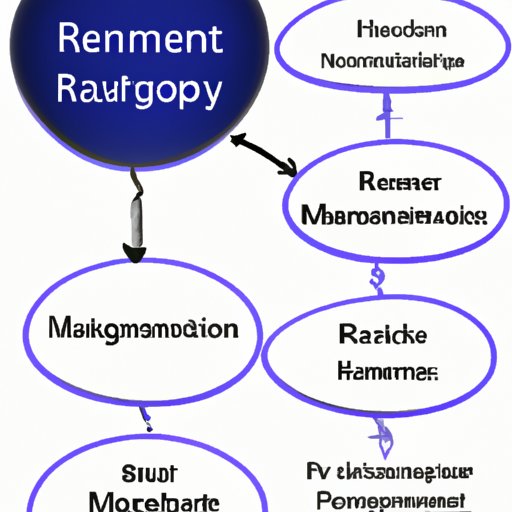Introduction
Human resource management (HRM) is a critical component of any business. It is the practice of managing and developing people within an organization in order to achieve the company’s goals. HRM encompasses a wide range of activities, including recruitment and selection, training and development, performance management, compensation and benefits, and labor relations. The primary goal of HRM is to maximize the potential of employees so that they can contribute to the success of the business.

Overview of the Role of HRM in Business
The primary role of HRM in business is to ensure that employees are managed and developed effectively in order to achieve the company’s goals. HRM also ensures that employees are treated fairly and that their rights are respected. HRM is responsible for creating a positive working environment, where employees feel valued and motivated to perform at their best. HRM is also responsible for ensuring that the organization complies with all relevant laws and regulations.

Benefits of Human Resource Management in Business
There are many benefits of having an effective HRM system in place. Here are some of the top benefits:
Improved Employee Performance
An effective HRM system can help to improve employee performance by setting clear expectations and providing regular feedback. This helps to ensure that employees are aware of what is expected of them, and that they are given the opportunity to reach their full potential.
Improved Recruitment and Retention Rates
An effective HRM system can help to attract and retain the best talent for the organization. By creating a culture of respect and appreciation, HRM can help to create a positive working environment that encourages employees to stay with the company for longer.
Increased Productivity
By investing in training and development and creating a positive working environment, HRM can help to increase employee productivity. Employees who are engaged and motivated are more likely to be productive and efficient.
Reduced Cost of Operation
By streamlining processes and eliminating unnecessary costs, HRM can help to reduce the cost of operation. HRM can also help to identify areas where money can be saved, such as reducing overtime or implementing cost-saving initiatives.
HRM Strategies for Successful Businesses
In order to maximize the potential of HRM, businesses must develop and implement effective strategies. Here are some of the key strategies businesses should consider:
Developing Effective HR Policies
It is essential that businesses have clear and comprehensive HR policies in place. These policies should outline the expectations of employees and provide guidance on how to handle different situations. Having effective policies in place will help to ensure that employees are treated fairly and that the organization remains compliant with all relevant laws and regulations.
Investing in Training and Development
Investing in training and development is essential for any business. Training and development programs can help to improve employee performance, increase productivity, and reduce the cost of operation. Investing in training and development can also help to attract and retain the best talent for the organization.
Creating a Positive Working Environment
Creating a positive working environment is essential for any business. A positive working environment can help to motivate employees and encourage them to perform at their best. It can also help to reduce employee turnover and improve recruitment and retention rates.

How Human Resource Management Impacts Employee Performance
HRM plays an important role in influencing employee performance. Here are some of the ways in which HRM can impact employee performance:
Setting Clear Expectations
HRM can help to set clear expectations for employees. By outlining the tasks and responsibilities of each employee, HRM can help to ensure that employees know exactly what is expected of them. This can help to improve performance, as employees will be better equipped to meet their targets and objectives.
Establishing Performance Goals
HRM can help to establish performance goals for employees. By setting measurable goals, HRM can help to ensure that employees are focused on achieving their targets and objectives. This can help to improve employee performance, as employees will be more motivated to reach their goals.
Providing Feedback
HRM can help to provide regular feedback to employees. By providing regular feedback, HRM can help to ensure that employees are aware of their progress and that they are given the opportunity to make improvements. This can help to improve employee performance, as employees will be better equipped to meet their targets and objectives.
The Challenges of Human Resource Management in Business
Although HRM can bring many benefits to a business, there are also some challenges that businesses must face. Here are some of the key challenges businesses must consider:
Compliance with Regulations
Businesses must comply with a range of laws and regulations when it comes to HRM. For example, businesses must ensure that they comply with anti-discrimination and labor laws. Failure to comply with these laws can lead to serious penalties. Therefore, it is essential that businesses are aware of their legal obligations and take steps to ensure they remain compliant.
Managing a Diverse Workforce
Many businesses have a diverse workforce, with employees from different backgrounds and cultures. It is essential that businesses have an effective HRM system in place to ensure that all employees are treated fairly and that their rights are respected. HRM must also ensure that employees from different backgrounds are given equal opportunities.
Mitigating Conflict
Conflict can arise between employees and it is essential that businesses have an effective HRM system in place to manage this. HRM must ensure that disputes are resolved quickly and fairly, and that employees are given the opportunity to voice their concerns. By addressing conflicts promptly, businesses can ensure that employees remain productive and motivated.

Human Resource Management Tools and Technologies
Technology has revolutionized the way businesses manage their HRM systems. Here are some of the key tools and technologies businesses should consider:
Automation of HR Tasks
HR tasks such as recruitment and selection, payroll, and employee data management can be automated using HR software. Automating these tasks can help to save time and money, and can also help to reduce errors.
Online Recruiting Platforms
Online recruiting platforms such as LinkedIn can help businesses to find the best talent for the organization. These platforms can also be used to connect with potential candidates and to post job listings.
Performance Management Software
Performance management software can help to track employee performance and provide feedback. This can help to ensure that employees are meeting their targets and objectives, and can also help to identify areas for improvement.
The Role of Human Resource Management in Organizational Development
HRM can play an important role in organizational development. Here are some of the ways in which HRM can contribute to organizational development:
Building a Positive Company Culture
HRM can help to build a positive company culture by creating a working environment that is conducive to employee engagement and productivity. A positive company culture can help to attract and retain the best talent for the organization.
Strategic Planning
HRM can help to develop and implement strategic plans for the organization. HRM can help to identify areas for improvement, and can also help to create long-term plans for the organization.
Enhancing Employee Engagement
HRM can help to enhance employee engagement by creating a culture of respect and appreciation. This can help to motivate employees and encourage them to perform at their best.
Conclusion
Human resource management is an essential component of any business. It is responsible for managing and developing people within an organization in order to maximize their potential. There are many benefits of having an effective HRM system in place, such as improved employee performance, increased productivity, and reduced cost of operation. However, there are also some challenges businesses must face, such as compliance with regulations and managing a diverse workforce. Technology has revolutionized the way businesses manage their HRM systems, and there are now a range of tools and technologies available to help businesses manage their HRM systems more effectively. HRM can also play an important role in organizational development, by helping to build a positive company culture and enhancing employee engagement.
(Note: Is this article not meeting your expectations? Do you have knowledge or insights to share? Unlock new opportunities and expand your reach by joining our authors team. Click Registration to join us and share your expertise with our readers.)
